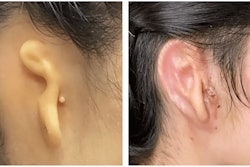Human speech isn’t perfect. We sometimes hesitate, make grammatical errors, or mispronounce common words. However, according to a recent Singularity Hub article, increased occurrence of these slip-ups could indicate something greater. A team at Drexel University believes that linguistic degeneration is an early indicator of Alzheimer’s, and is working with artificial intelligence to identify it. This is a lot easier said than done, as each person has their own speech patterns, cadence, tone, vocabulary, and nuances that the average AI can’t delineate.
So, the team employed Generative Pre-trained Transformer 3 (GPT-3) to help identify linguistic nuances that could suggest dementia. GPT-3 is an autoregressive language model that uses deep learning to generate human-like text. You basically feed it a prompt, and it produces text accordingly. When the team fed GPT-3 new data, it successfully differentiated between Alzheimer’s patients and healthy patients, and could predict the patient’s cognitive testing score.
“To our knowledge, this is the first application of GPT-3 to predicting dementia from speech,” the authors said. “The use of speech as a biomarker provides quick, cheap, accurate, and non-invasive diagnosis of AD and clinical screening.”






















